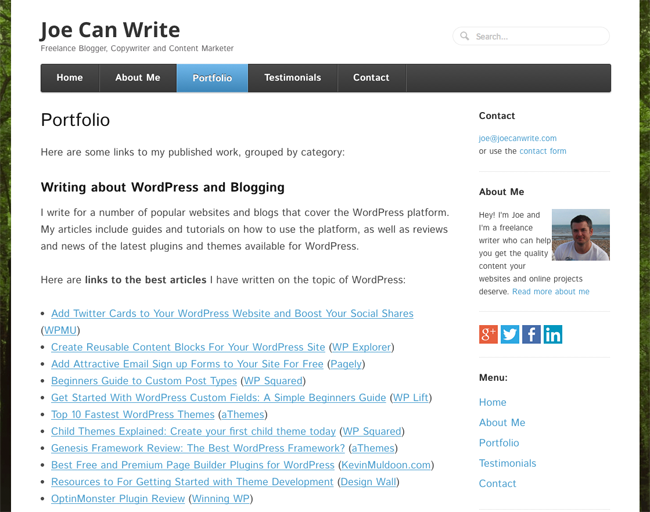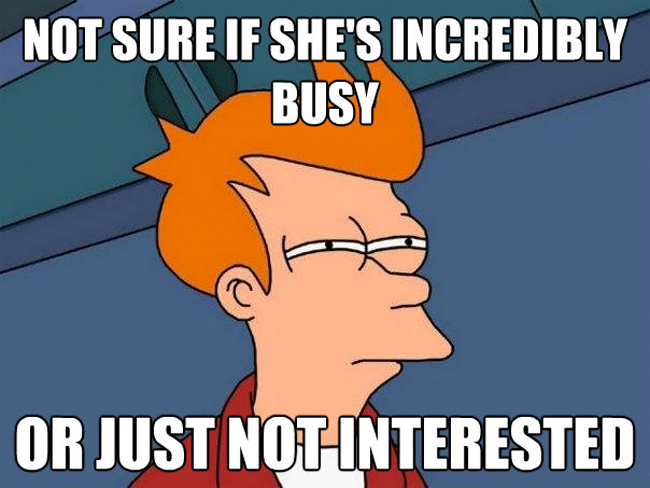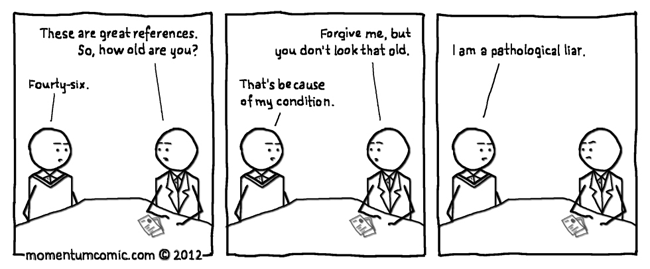If you are willing to work hard, freelance blogging is a great entry point to making money online as you do not need a lot of technical skills to get started.
One of the most common complaints I hear from aspiring bloggers is how difficult it is to find work. This may sound harsh to many of you, but in my experience, if you are struggling to get hired as a freelance blogger, you are probably doing something wrong.
It is difficult for blog owners to find good bloggers, therefore if you are not getting hired, it could be because you failed to make a good first impression when you made your initial pitch. It could also be because the first article you submitted was poor.
I believe that most freelance bloggers fail to find work as they do not give freelancing the respect it deserves. You should not expect blog owners to accept any old rubbish and pay you for it.
I discussed this issue at great length yesterday in my article “The Problems You Face When Hiring Bloggers“. In today’s article, I would like to highlight 8 reasons freelancer bloggers are finding it difficult to get hired.
1. Their Initial Pitch is Poor
Your initial pitch to a job advertisement will be the biggest factor on whether you get hired or not. It should be polite, professional, and above all else, highlight what you can do.
Be sure to proofread your pitch before you send it. A large percentage of pitches I receive contain basic grammatical errors; which paints a very bad picture of the applicant.
It may be tempting to write a long detailed application, however I would advise against this. Blog owners are busy. They do not want to read several hundred words about you and are not interested in every single online job you have had over the last ten years. All that is required is two to four lines explaining who you are and what you do.
Underneath your short bio you should add links to a couple of great articles you have written that showcases what you can do. These articles should preferably be relevant to the position you are applying.
Do not list articles that you have ghost written as there is no evidence you wrote those articles. Likewise, do not attach example articles in Word format. Blog owners want to see articles that have been published online with your real name or your pen name (pen name = pseudonym/alias).
2. They Do Not Address the Contact
My name is Kevin Muldoon. This is a personal blog that is hosted at KevinMuldoon.com. My name is plastered throughout this blog.
You would therefore expect everyone who contacts me to know who I am. Unfortunately, that is not the case. Obviously, spammers contact me with “Dear Sir or Madam” written at the top of the email. The strange thing is that many bloggers who want to write for me do the same.
I have received countless emails from would-be bloggers who start their email off with “Dear Admin” or “Dear Sirs” and then go on to say that they are a huge fan of my blog and love the articles I publish.

It is not a deal breaker as I know that many bloggers use standard email templates to apply for jobs. However, I never get a good first impression of someone who refers to me as admin and then tries to convince me that they read my blog regularly.
There is no requirement to read my blog in order to write for me, however it only takes a minute to learn my name.
My point is that you need to pay attention to the job advertisement. If someone uses their name in the ad, be sure to use it when you approach them about the job. It may seem trivial, but little things like this matter when you are trying to give a good first impression.
3. They Do Not Have an Online Portfolio
I was not initially sure about including this in my list as an online portfolio is not essential to getting a blogging gig. It can, however, improve your chances of getting a job considerably.
Earlier I recommended including a short description of yourself in your job pitch and listing a few articles you have published online. Beneath this section, you should include a link to your online portfolio. For example, you could write “Check out my online portfolio to find out more about me”.
An online portfolio informs others who you are and what you can do. Ideally, it should explain who you are, list your best articles, link to your social media accounts, show testimonials from existing clients, and have a contact form or email address for blog owners to contact you. It should only take you an hour or two to create such a website.
Rise Forums member Joe Fylan has a simple online portfolio. It is a good example of what information a freelance blogger’s portfolio should contain.

A self-hosted website will give you full control over how your portfolio looks, however there are costs involved with that. Therefore, if you want to keep costs down and do not want the hassle of maintaining a website, a portfolio can instead be created in an hour using a free service such as WordPress.com or Wix. Alternatively, you could also use a service such as LinkedIn.
An online portfolio is not only useful for job applications. It is also another gateway for potential clients to find you if you link your portfolio in the bio area of your blog posts. Therefore, if you want to take freelance blogging seriously, you need to have an online portfolio.
4. They Do Not Read the Job Advertisement
I am not someone who asks people to jump through hoops (e.g. write a 1,000 word sample article for an application).
When I posted an ad on ProBlogger, my request was simple: Complete my simple application form with three examples of articles you have published online. That was it.
Seems like an easy request, doesn’t it?

Unfortunately, a high percentage of applicants do not actually read the description of the job they are applying for. In my ad, I had noted that suitable applicants:
- Should have a few years experience of working online
- Should own at least one website
- Should have experience with writing long in-depth articles and tutorials for high traffic blogs
- Must have experience using WordPress as they will be required to submit articles themselves
- Must adhere to my writing guidelines
- Must have a high proficiency of English grammar (preferably a native English speaker)
I received emails from dozens of bloggers who have never used WordPress before. Emails from people who have never published articles for other blogs. And emails from people whose initial pitch was littered with errors and mistakes.
The biggest problem was that most applicants did not send examples of articles they had published online (remember – this was the only information I requested). Some applicants asked me to just check their website; which was highly frustrating as it meant I had to spend time searching through their unorganised website for appropriate articles to review. Others linked to dead websites and articles in which their name was mentioned.
As you can see above, I also asked specifically for people with experience in writing for top blogs. Very few applicants did.
If a blog owner asks you for specific information in their job advertisement: Provide it. It is not a difficult thing to do.
5. They Apply for Jobs They Are Not Interested In
On popular job boards such as ProBlogger, there is a large group of people who apply for every single job that is published. Regardless of whether they are qualified for the position and regardless of whether they plan on actually completing the job.
It is very frustrating.
I have received emails from thousands of aspiring bloggers over the years. The actual number of bloggers that are good enough to be hired is quite small.
Once I agree to work with a blogger, it usually takes several emails for me to explain how everything works and address any questions they have. This part of the process can take hours, or it can take days. It depends on how quick the applicant is to respond and how many questions they have.

If the blogger is comfortable moving forward, I create a contributor account for them. On KevinMuldoon.com, I currently have 43 contributor accounts that have been set up. The initial number of accounts was initially 20 or 30 higher, however I deleted many of these accounts since the blogger did not submit any articles.
Let me say that again.
These bloggers went to the hassle of contacting me to write for me, asking questions about my writing process, and then agreeing a topic to write about. And then….nothing. They never contributed a blog post.
Despite deleting up to 30 accounts of people that did this, there are more accounts I still need to delete. Of the 43 contributor accounts on this blog, 12 have no blog posts and 18 have only published one article. And one of the accounts with multiple blog posts is my girlfriend’s account
What that means is that of the 65 to 70 people who have reached the point where they have agreed to write for me, only 12 bloggers have contributed more than one article.
This highlights the number of bloggers out there who are not serious about their job.
If you are not interested in a particular job, whether it’s because you think the job is not worth your while or because you do not have the necessary experience, do not apply for it. Applying for the job wastes your time and it wastes the blog owner’s time. It also reflects badly on you as a freelance blogger; which could inadvertently lose you work in the future.
6. They Do Not Follow Writing Guidelines
If you are fortunate enough to land a good blogging gig, do not rest on your laurels as you still have a lot of work to do. You have showed the blog owner that you are a capable blogger. Now it is time to prove it.
The vast majority of blog owners will ask you to write articles and style articles in a particular way. These are usually referred to as writing guidelines. They cover such things as the maximum width of images, whether links should be opened in new tabs, and where the blogger should source images.
I spoke about this issue at great length in yesterday’s article. As you may recall, the vast majority of bloggers fail to adhere to writing guidelines; which means that blog owners need to explain writing guidelines to bloggers that have already been documented on the writing guidelines information page.
Freelancers should be professional and take a note of all guidelines and rules that a blog owner wants them to follow. If you are unsure about any particular rule, contact your client and ask them to clarify their rules.
7. They Do Not Proofread Their Articles
At the very least, bloggers have a duty to proofread their articles at least once. This will help them spot silly mistakes and errors.
I wrote the first draft of this blog post back in October. I remember being frustrated that day as two blog posts had been submitted; both of which had many grammatical errors in them. One took an hour to edit. The other one took five hours.
I took them on as I wanted to get them published. In hindsight, this was a huge mistake. I should have asked the bloggers to correct these errors and if they did not have time to do so, I should have rejected them due to their poor quality.
My time is important to me. I cannot afford to keep checking posts. The time I spent correcting errors that day would have been better spent working on things that helped my bottom line.
Freelance Bloggers have a duty to proofread their articles. A spelling mistake or two is forgivable. An article littered with mistakes and grammatical errors is not.
Even top bloggers let the odd mistake slip through from time to time, however most errors should be getting picked at the proofreading stage. Failure to do this is unprofessional as it means that the blog owner needs to either correct these errors for you, or they need to spend a lot of time explaining these errors to you so that you can correct them.
There is no excuse to rushing and submitting poor quality articles. Proofread your articles before you submit them and ensure that your high quality of work is maintained.
8. They Take No Pride in Their Work
I think one of the biggest problems with freelancer bloggers is that they do not take pride in their work.
I spend a lot of time proofreading my articles. I also re-crop images if they are not good enough and submit articles late if they are not up to a good standard. I would rather do that than submit a poor article and hurt my reputation. Not to mention the fact the blog owner would probably send the article back to me because it was incomplete or simply not good enough.
If you want to become a successful freelancer, you need to enjoy what you do. You need to be passionate and take pride in what you do.
Cutting corners might seem like a good idea at the time, though in the long term it will damage your reputation as your standard of writing drops.
What Say You?
This article was born out my experiences hiring bloggers for my blogs and from writing for other blogs myself. Those of you have hired people to write for your blog are aware that the overall standard of most applicants is very low.
I have no issues with people who struggle with English; particularly those who have learned English as a second language. However, I have come across a lot of great bloggers who have not become successful freelance bloggers because their attitude is all wrong. They have a short-sighted approach to working online; which is why their articles are rushed.
Blogging for others is not rocket science. If you are willing to put the time in to do research and write high quality articles, you will find blog owners who are willing to pay you a good wage to write for them.
I hope you have enjoyed this look at why many freelance bloggers are struggling to find work online. Should you want direct advice on freelance blogging, please drop by Rise Forums. We have a lot of experienced bloggers there who will be happy to point you in the right direction.
In the mean time, I would love to hear from you all about what you think freelance bloggers are doing wrong, so please leave a comment below if you have time :)
Thanks,
Kevin





